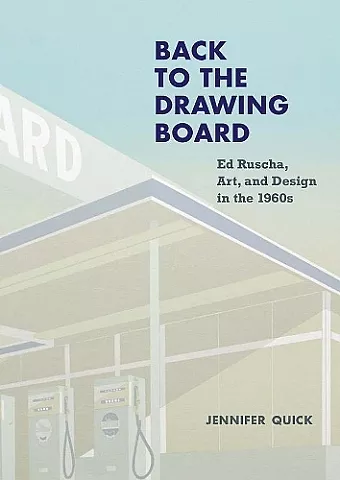Back to the Drawing Board
Ed Ruscha, Art, and Design in the 1960s
Format:Hardback
Publisher:Yale University Press
Published:26th Apr '22
£40.00
Available to order, but very limited on stock - if we have issues obtaining a copy, we will let you know.

The first book to consider the importance of commercial art and design for Ed Ruscha’s work
Ed Ruscha (b. 1937) emerged onto the Los Angeles art scene with paintings that incorporated consumer products, such as Spam and Sun-Maid raisins. In this revelatory book, Jennifer Quick looks at and beyond the consumer imagery in Ruscha’s work, examining it through the tools, techniques, and habits of mind of commercial art and design. Quick shows how his training and early work as a commercial artist helped him become an incisive commentator on the presence and role of design in the modern world.
Back to the Drawing Board explores how Ruscha mobilized commercial design techniques of scale, paste-up layout, and perspective as he developed his singular artistic style. Beginning with his formative design education and focusing on the first decade of his career, Quick analyzes previously unseen works from the Ruscha archives alongside his celebrated paintings, prints, and books, demonstrating how Ruscha’s engagement with commercial art has been foundational to his practice. Through this insightful lens, Quick affirms Ruscha as a powerful and witty observer of the vast network of imagery that permeates visual culture and offers new perspectives on Pop and conceptual art.
“Ruscha has captured the zeitgeist of American culture for decades, and Jennifer Quick helps us understand that an essential part of his talent for representing the popular, the spectacular, and the alluring is connected to his lifelong fascination with design.”—David Brody, Parsons School of Design, The New School
“Jennifer Quick’s approach is timely and compelling, given the high profile of design in contemporary culture, but it is her close reading of Ruscha’s complex play with materials and form that ultimately make this such a rewarding account of his art.”—Ken D. Allan, Seattle University
ISBN: 9780300256925
Dimensions: unknown
Weight: unknown
208 pages